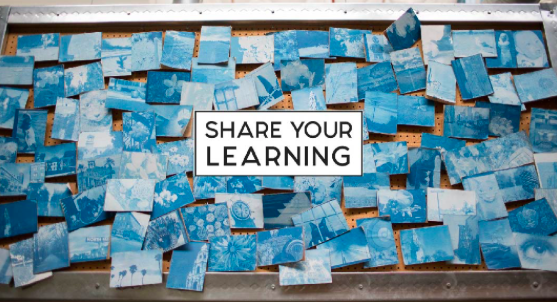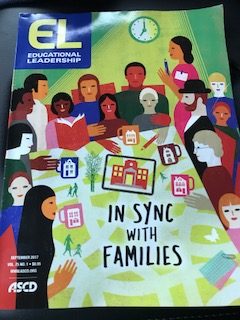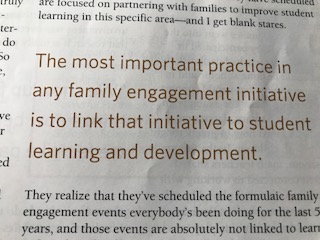As I read this month’s edition of Education Leadership, which focused on the role families play in the education of our children, I couldn’t help but think about what PBL can offer to this conversation. But not just PBL alone-the importance of public displays of project work, through a community-based exhibition experience.
As PBL becomes more mainstream and schools begin to focus on striving for higher quality PBL, frameworks such as BIE’s Gold Standard are becoming common “north stars” for project design. One of the elements of high quality PBL is the concept of public audience for student work; one common way to achieve this is through exhibitions. Exhibitions are school-wide events that curate student work and invite the outside community into not only view the work but hear from students about their learning. The befits to this type of learning experience include, but are not limited to:
- Providing a real audience for student work, thus raising the stakes for quality of student work.
- Providing opportunities for students to speak about their learning and thinking, by addressing questions and engaging with unique perspectives.
- Fostering a positive home/community-school relationship
What I want to point out is that just simply inviting parents into a science-fair-like display of student work doesn’t get to what we know are best practices for including parents in learning nor does it lead to deeper learning. It’s really only a few notches above the well-known conversation between a parent and child at night: Parent: “how was school today? what did you do?” Child: “fine. nothing.” What we need are rich, shared learning experiences.
Exhibitions that lead to deeper learning ask students to:
- Create a transformative experience for an audience
- Open a window into the learning that happened throughout the project
- Honor the process that went into the final products on display
- Engage the audience in conversation, and collective learning
Some of my favorite exhibitions have included simulations or reenactments, performances, salon nights, town hall debates, evening celebrations of work curated in community based locations, live-building or prototyping. These are the types of experiences that extend beyond the simple trifold board and a student reciting content, and move to active participation between student and community/family; which can lead to deeper leaning and connections for all!
To learn more about exhibitions visit Share your Learning for resources and inspiration or bring CraftED to you for PD and personalized support.



